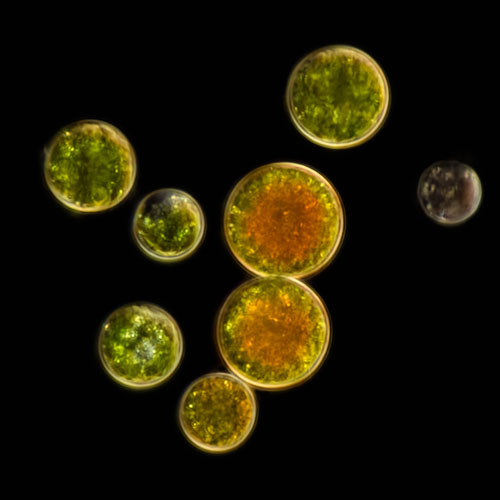As a result of evolving consumer preferences and market dynamics, the pharmaceutical industry is witnessing a significant shift towards the incorporation of nutraceutical ingredients.
This trend is not merely a response to end-user demand but also strategically aligns with the broader goals of improving public health outcomes and expanding business portfolios. Dietary supplements and nutraceuticals allow pharmaceutical companies to innovate within a less stringent regulatory framework, facilitating quicker and more cost-effective new product development.
In this context, and with its vast, clinically backed health benefits, natural origin and more sustainable profile, the microalgae-derived antioxidant astaxanthin has the potential to be of particular interest. Here, Dr Behnaz Shakersain, Scientific Affairs Manager at AstaReal, reveals the reasons behind the rise of nutraceuticals in the pharma industry.
Health-conscious consumers
Growing consumer interest in health and wellness is at the forefront of the recent market trajectory.
Modern consumers are increasingly seeking natural and preventive healthcare solutions, subsequently resulting in rising demand for nutraceuticals — bioactive components found in food or food products that provide health benefits beyond basic nutrition.
This has led to the supplements and nutraceutical market exceeding the over-the-counter (OTC) drugs market in both size and growth. According to Euromonitor, the category of vitamins and dietary supplements first surpassed the OTC drugs market in 2020 — accelerated by the COVID-19 pandemic.

Nutraceuticals better align with the public’s preference to maintain health rather than merely treat diseases. High-quality clinically backed substances such as the branded microalgae-derived astaxanthin are seen to support overall health and wellness.
Concerns about side-effects and the long-term health impacts of certain synthetic chemicals are also not to be underestimated. Nutraceuticals that are proven to be safe and efficacious are becoming the preferred choice for health support.
Demographic shift
In addition, the globally ageing population means a higher prevalence of chronic diseases.
This demographic shift underscores the need for supplements that support long-term health and help to combat age-related conditions such as cardiovascular diseases, muscle and joint problems, poor vision/eye problems, diabetes and cognitive decline.
Evidence-based nutraceuticals can complement traditional pharmaceutical products, offering a holistic treatment approach. Such synergy may enhance the effectiveness of pharmaceuticals, ultimately improving patient outcomes.
Astaxanthin, for example, has been shown to have anti-inflammatory and antioxidant properties that may be beneficial in the management of conditions associated with oxidative stress and chronic inflammation.
Regulatory and economic advantages
Nutraceuticals often face less stringent regulatory requirements than pharmaceuticals. Although this does not inherently mean that they are unsafe or ineffective, it can translate into shorter development times and lower costs to bring new products to market.
The reduced need for rigorous longitudinal premarket testing and lengthy approval processes significantly decreases the expense associated with developing nutraceutical products.
This cost efficiency makes it feasible for companies to offer a broader range of products and innovations. They can develop and refine formulations based on emerging scientific research and consumer feedback without the prolonged delays typically associated with pharmaceutical approvals.

Varying regulatory frameworks in different countries can also be advantageous as companies can tailor their nutraceutical products to meet specific regional requirements, thereby facilitating easier entry into diverse global markets.
Furthermore, the quality control, scientific validation and dosage substantiation of nutraceutical ingredients from reputable brands can better ensure the effectiveness of the products and, therefore, market success.
Clinical studies to assess the safety and efficacy of final product/formulation combinations, especially if they are intended to be used in conjunction with pharmaceutical solutions, are highly recommended to mitigate against any risk of negative food-medicine interactions.
Leveraging pharmaceutical expertise
Pharmaceutical brands have extensive expertise in research and development, quality control and clinical testing. These capabilities can be leveraged to develop high-quality dietary supplements and nutraceutical products.
Although nutraceuticals may not require the same level of clinical testing as pharmaceuticals, companies can still utilise their expertise and generally larger budgets to run more extensive and longer studies that more definitively demonstrate the efficacy and safety of these products.
Furthermore, such scientific validation can differentiate them in a competitive market. The intersection of pharmaceutical precision and nutraceutical innovation creates a powerful platform for the development of superior health products.
Diversification and new revenue streams
Entering the nutraceutical market also allows pharmaceutical companies to broaden their product portfolios alongside traditional therapeutic drugs and tap into new revenue streams.
This diversified portfolio can appeal to a wider range of consumers. The established reputations of most pharmaceutical companies for quality and safety can foster consumer trust in their nutraceutical products, enhancing market acceptance and success.
This trust can help to attract health-conscious consumers who might be wary of lesser-known brands.
Advances in personalised medicine
Finally, advancements in personalised medicine and nutrition are driving the development of tailored dietary solutions that meet specific individual needs. This personalised approach further broadens the appeal and market potential for nutraceutical products.
Personalised nutrition plans that incorporate tailored dietary supplements and nutraceuticals can address individual deficiencies, support specific health goals and enhance overall well-being.
Moreover, the integration of big data and artificial intelligence in healthcare enables the analysis of vast amounts of health information. This can help to identify trends and correlations that facilitate the development of targeted nutraceutical products, ensuring they meet specific (preventive) health requirements.
Case in point: astaxanthin
When developing safe complementary or preventive health products, many pharmaceutical companies are turning to nutraceutical ingredients with strong research evidence backing their safety and efficacy.
Astaxanthin is a prime example of such an ingredient. With its unique molecular structure, critical site of action (the cells and mitochondrial membranes) and scientifically proven antioxidant and anti-inflammatory properties, AstaReal astaxanthin is well positioned to satisfy current consumer and industry demands.
With more than 35 years of research and development experience, AstaReal is the global pioneer and expert in cultivating the microalga Haematococcus pluvialis and producing high-quality astaxanthin.
AstaReal’s 70+ human clinical trials collectively support astaxanthin’s potential to enhance muscle endurance and recovery, counteract fatigue, reduce inflammation, improve skin texture, strengthen immunity, vision and cognitive functions, and alleviate infertility.
These health benefits are driving significant demand for the algal antioxidant, with AstaReal astaxanthin’s benefits for physical, mental and emotional well-being favoured by consumers seeking a more holistic approach to health.
Nutraceuticals that promise benefits across these domains are particularly attractive for healthy ageing.

Derived from microalgae, astaxanthin not only supports health but also perfectly addresses the growing demand for plant-based products — while ticking all the boxes in terms of sustainability and animal welfare.
As many consumers are switching to a more sustainable lifestyle and starting to consider the ecological impact of their purchasing decisions, algae and microalgae are becoming more accepted.
These tiny green organisms are planet-friendly, easy to cultivate, fast to regrow and have numerous health benefits. They are perfectly compatible with plant-based formulations and therefore meet the needs of the globally rising number of vegetarians and vegans.
AstaReal has launched Astaxin VEGAN, an antioxidant formula that perfectly taps into the plant-based market: the vegan softgel is made of carrageenan and modified starch, with the content mirroring the company’s very first product, Astaxin Original, which is an astaxanthin-rich meal of the microalga Haematococcus pluvialis combined with vitamin C and natural vitamin E.
Pharma brands are increasingly inspired by the consumer-friendly dosage forms touted by the nutraceuticals industry, including gummies, softgels and liquid shots.
Astaxanthin can be used in a broad range of applications and in combination with numerous other ingredients. For example, with vitamin D to provide extra muscle support and with collagen to offer synergistic effects in sports nutrition and skin health.
Astaxanthin, lutein and zeaxanthin used in combination can also provide comprehensive eye support. Mimicking its natural presence in krill oil, it partners beautifully with long-chain omega-3s too.
Health-conscious lifestyle trends, such as clean eating and organic living, have further fuelled the demand for natural and sustainable nutraceuticals. Ingredients such as astaxanthin fit well here.
Conclusion
The pharma-nutra convergence represents a significant evolution in the industry. Pharmaceutical companies are increasingly recognising the value of nutraceutical ingredients as part of their strategic growth.
By integrating nutraceuticals into their product lines, they can better meet consumer demand for natural and preventive healthcare solutions, improve public health outcomes, diversify business opportunities and enhance their competitive edge in the market.
